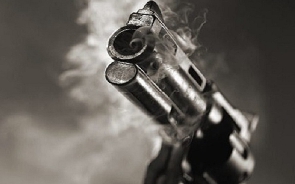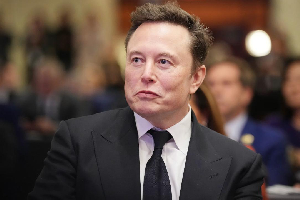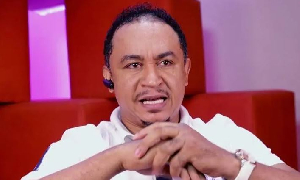By Kwame Okoampa-Ahoofe, Jr., Ph.D.
Garden City, New York
E-mail: okoampaahoofe@optimum.net
It is very refreshing to hear Prof. Mike Oquaye put the declaration of Ghana’s sovereignty in March 1957 in its most accurate and proper perspective. According to the retired University of Ghana professor and prolific scholar of Ghanaian history and politics, it was the Duchess of Kent, acting at the behest of Queen Elizabeth II, who declared Ghana to be independent. And that act of declaration, we are also told, was executed in Ghana’s Legislative Assembly, or Parliament, and not at the Old Polo Grounds, adjacent to the Accra Arts Center, as we have been given by to believe by many a postcolonial Ghanaian historian (See “Dutchess of Kent Declared Ghana Independent” Kasapafmonline.com / Ghanaweb.com 9/22/15).
What this means is that then-Prime Minister Kwame Nkrumah’s Polo Grounds speech was just that, a Polo Grounds Speech. One cannot, of course, downplay the symbolic significance of the Polo Grounds Speech to the general sweep of the Independence Fever that gripped the Africa of the late 1950s and early 1960s, as was duly recognized by British Prime Minister Harold McMillan in his celebrated “Wind of Change” speech. What piqued my attention and interest, however, was Prof. Oquaye’s observation that it was Dr. K. A. Busia, Ghana’s main opposition leader in 1957, who seconded Nkrumah’s so-called Motion of Destiny in Parliament. This version of the events leading to Ghana’s reassertion of her independence runs contrary to the version canonized by the ardent and fanatical Nkrumacrats, which has Busia invariably resisting the country’s collective agitation for independence. It simply means that if Dr. J. B. Danquah and Mr. George “Paa” Grant were proponents of Ghana’s modern independence movement and its architects, the latter credit of which is often justifiably accorded Dr. Danquah, then, it undoubtedly stands to reason that Mr. Nkrumah and Dr. Busia be accorded the joint title of midwifes of Ghana’s independence.
Indeed, Nkrumah might have played a dominant role after his parliamentary election in 1950, and his subsequent induction, first, as Leader of Government Business and later as Prime Minister. What the preceding all boils down to, though, is the fact that the concept of a single Founder of modern Ghana does not square up with the reality of the country’s history. The debate of who ought to be credited with “ownership” of Ghana’s independence is likely to rage for some time to come. Ultimately, however, it is hoped that sanity and honesty would prevail, and the list of luminaries who qualify to be conferred with the accolade of “founders” – both male and female – is likely to be more comprehensive and realistic than it is presently.
Opinions of Tuesday, 6 October 2015
Columnist: Okoampa-Ahoofe, Kwame
Nkrumah’s Selflessness? Come On!
Opinions













